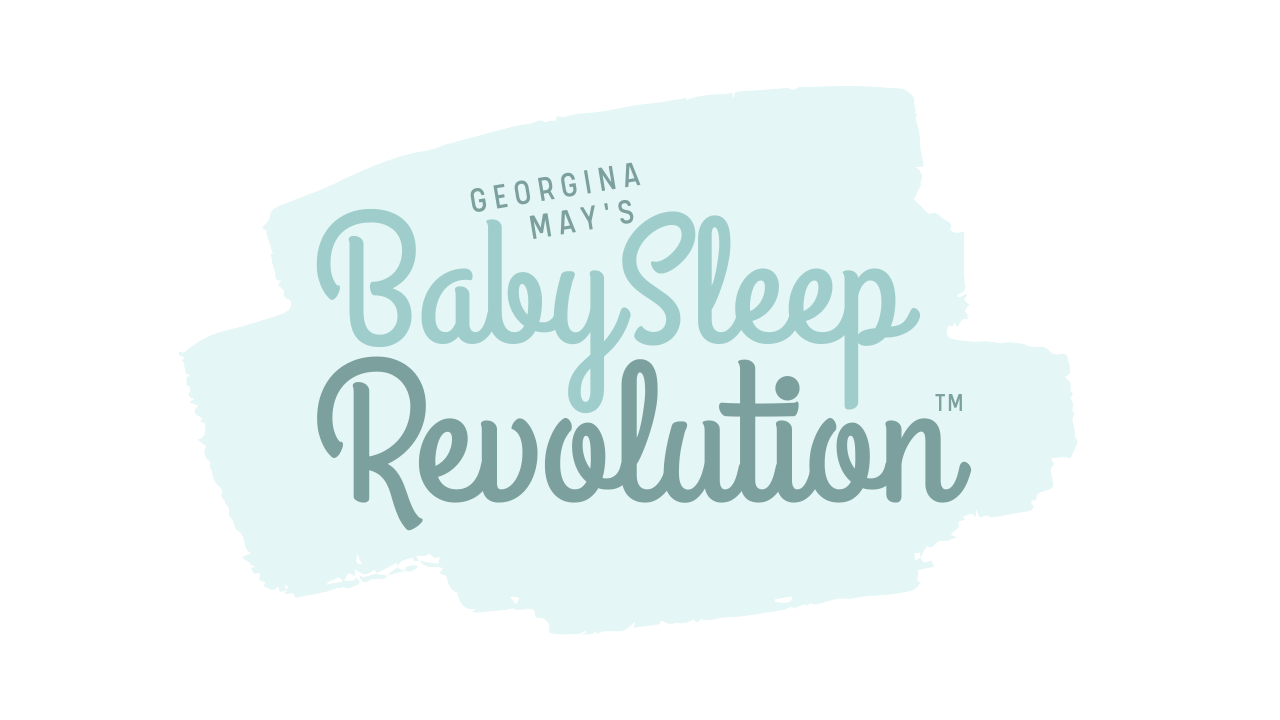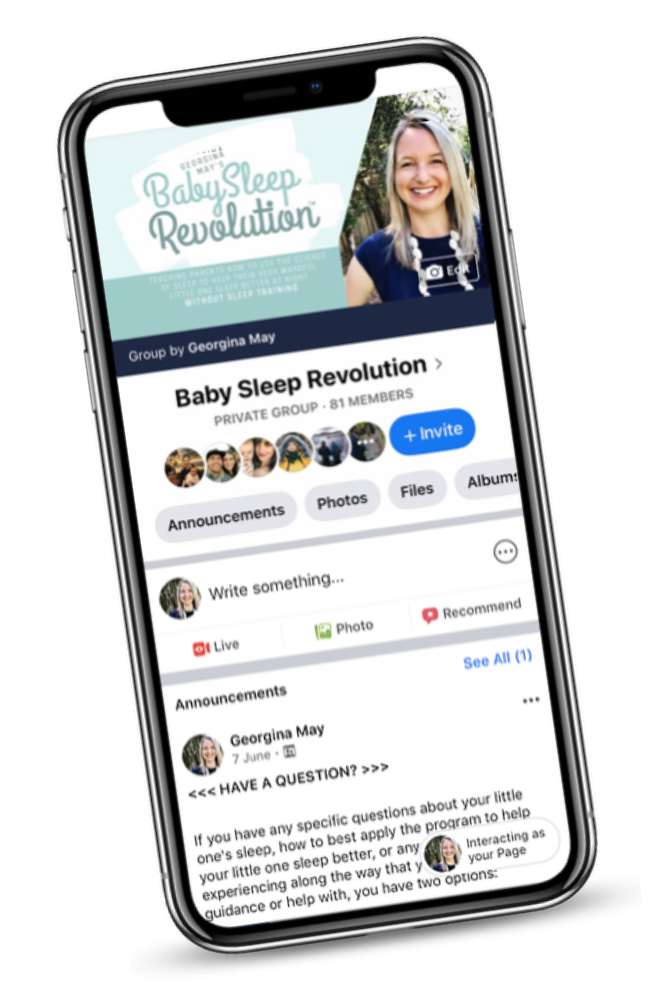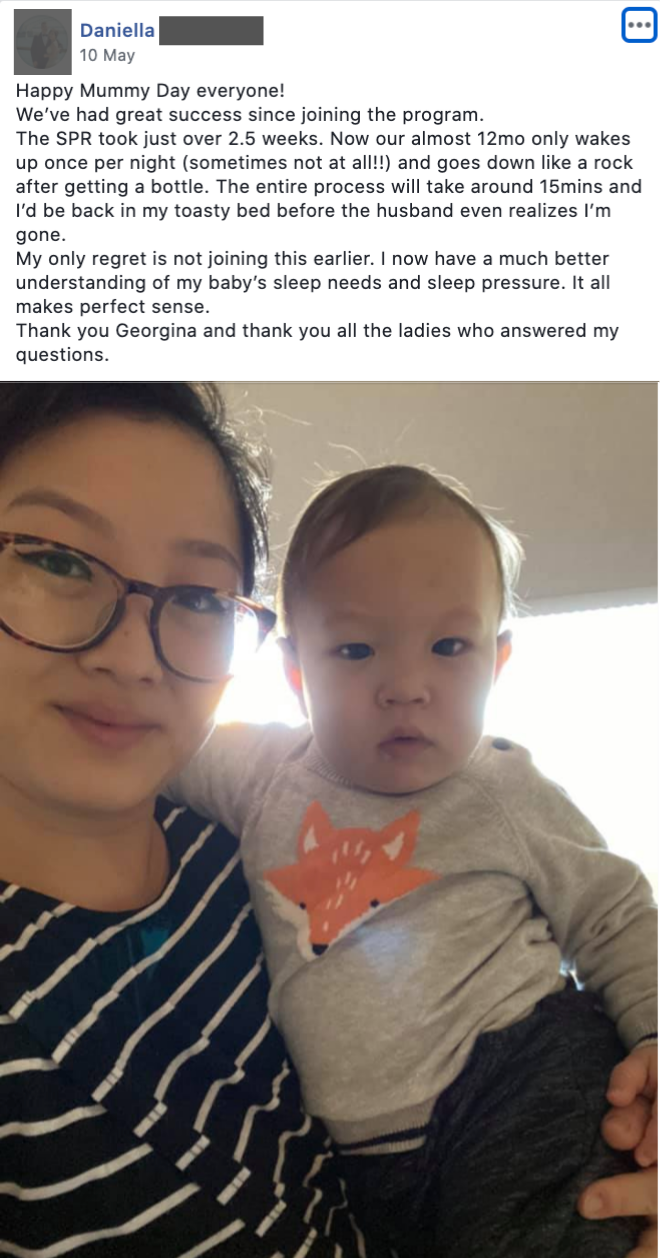Learn How To Help Your Very Wakeful Little One Sleep For Longer Stretches At Night WITHOUT Sleep Training.
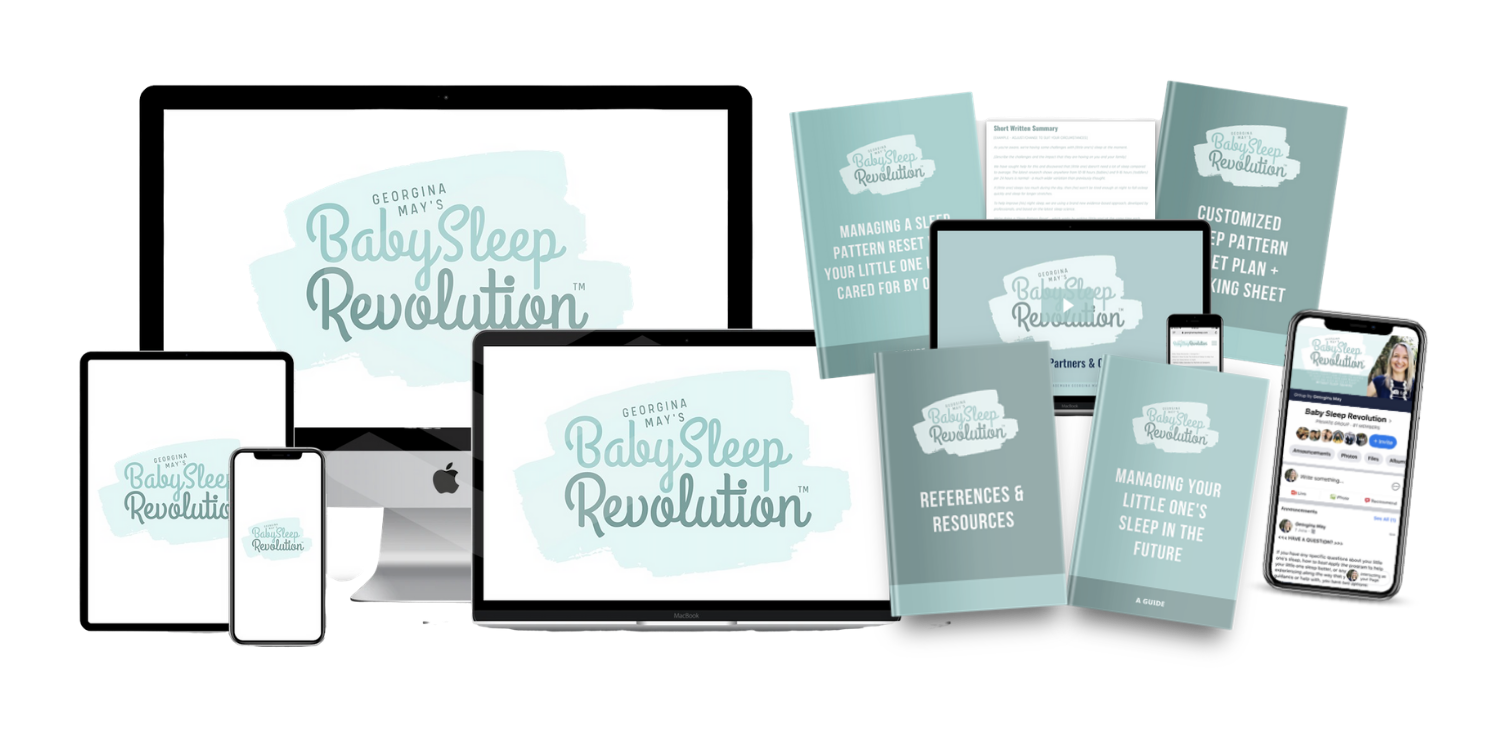
IF YOUR BABY OR TODDLER:
- Wakes frequently at night
-
Loves a 2am party, or
-
Sleeps very lightly / is restless for periods of the night
AND YOU'D LIKE TO:
- Help them fall asleep quickly, within minutes
- Encourage longer stretches of sleep at night
-
Continue to be responsive to their needs at night (including feeding to sleep & co-sleeping if you want), and
-
Get the rest you need to be able to function properly & enjoy parenthood a whole lot more...
...then Baby Sleep Revolution™ may be exactly what you need!
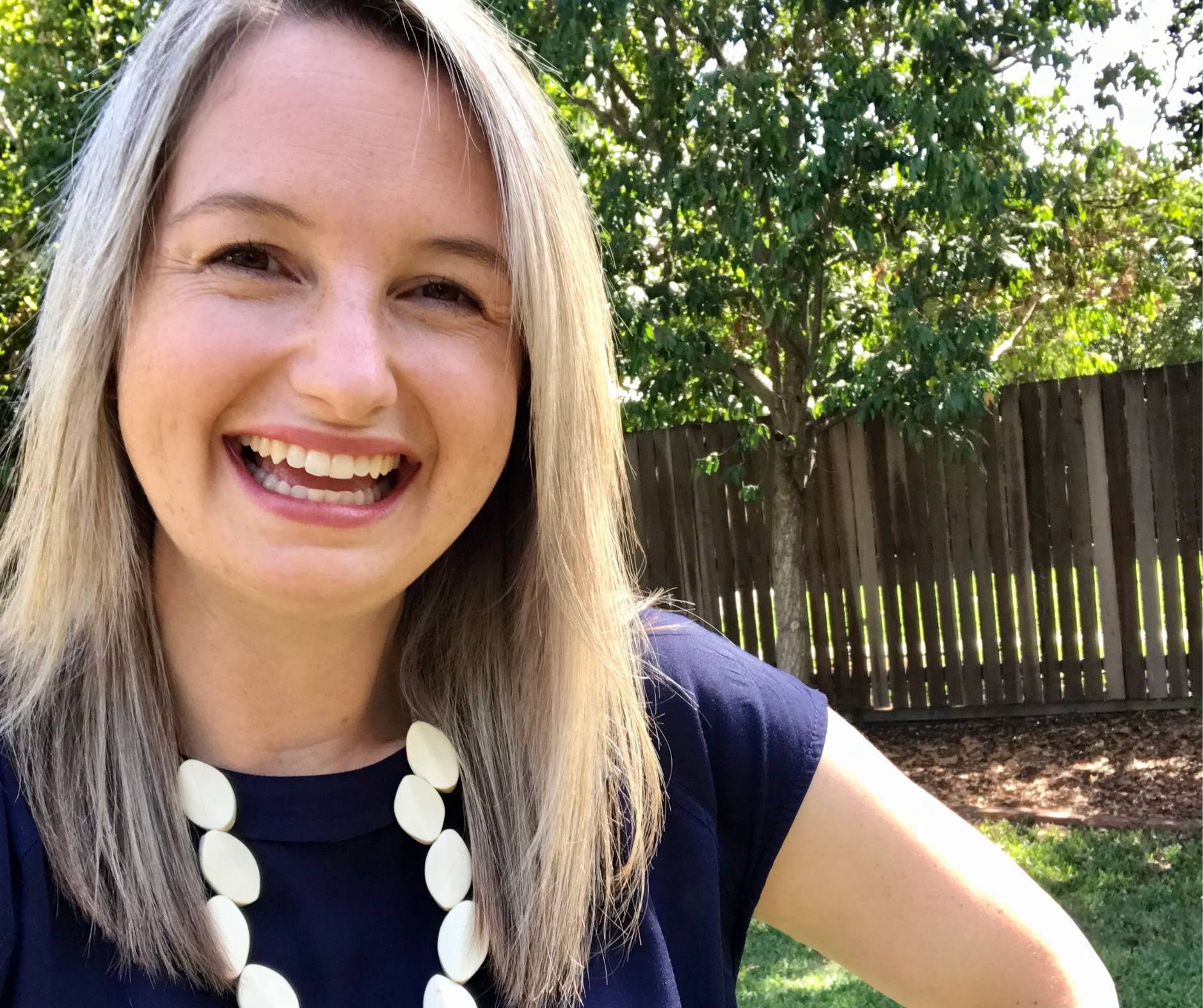
Hi, I'm Georgina...
I'm an evidence-based Baby & Toddler Sleep Educator and the mum of a little one who went through a major 'sleep regression' at 9 months of age...
He was never the world's best sleeper, but up until that point I'd been managing okay...
Then the regression hit and he started waking 5, 6, 7, 8+ times at night. Sometimes every sleep cycle!
It was absolutely exhausting.
Sleep deprivation on a whole new level.
This wakefulness went on for weeks and weeks until I got to the point where - after a particularly rough string of nights - I felt like I had nothing left to give.
I'd reached breaking point.
I could barely function during the day.
My brain was a foggy mess.
I'd forget why I walked into a room... I'd forget entire conversations... I'd forget to lock the house.
I even left the gas cooker burning for 6 hours straight one day while I was out. 🙊
(the house was still intact when I got home, thank goodness!)...
What is Baby Sleep Revolution™?

Baby Sleep Revolution is a comprehensive, evidence-based online program that teaches parents and caregivers how to help their VERY wakeful baby or toddler fall asleep quickly and sleep for longer stretches at night, using the latest sleep science.
The program has been specifically developed to help little ones 5+ months with a Disrupted Sleep Pattern caused by lower than optimal sleep pressure overnight.
It works by 're-setting' their sleep pattern (a process known as a 'Sleep Pattern Reset') - to achieve a more biologically natural rhythm, with more restful and predictable nights.
With Baby Sleep Revolution™:
- You can help your little one fall asleep quickly - within minutes - almost immediately (no more stressful settling marathons!)
- And you should start to see significant improvements in night wakefulness in 1-3 weeks!
- 24/7 Access to the Complete 3 Module Video Program with clear step-by-step instructions that have been developed, tested and refined with hundreds of happy parents to give you the best chance of achieving a great improvement - consistently - going forward.
-
Lifetime membership of the private Baby Sleep Revolution community where you can connect with likeminded parents for help and support.
-
A bunch of downloadable resources & guidebooks to help you now & in the future.
(scroll down or click here for all the nitty-gritty details - and a little video - on the program!)
And just in case you're still a bit skeptical... 🤨
Watch To Learn More!
Watch my comprehensive video on How To Overcome Excessive Night Wakefulness covering:Disrupted Sleep Patterns - including insights from the latest science and research - and the Baby Sleep Revolution Sleep Pattern Reset process.
[This video is a shorter version of the highly popular Education Session on Excessive Night Wakefulness]
References: Sleep Pattern Studies
Is Baby Sleep Revolution™ Right For You?
It's likely to be, if:
- Your little one is 5+ months of age (corrected/adjusted), is healthy and you have no concerns about their health or development.
-
Your little one's excessive night wakefulness is caused by a Disrupted Sleep Pattern* / lower than optimal sleep pressure (check out the video above 👆How To Overcome Excessive Night Wakefulness👆 for more info on this).
-
You would be happy to achieve nights with minimal wakes and fast settling / resettling. You know it's normal for babies and toddlers to wake at night and understand this is NOT a guaranteed 'sleep through the night solution. It's likely that your little one will still wake at night - at least once or twice, possibly a bit more (whatever their 'normal' is) - and may still need some help to get back to sleep.
-
You're committed to implementing a Sleep Pattern Reset which includes being comfortable with waking your little one in the morning and from naps if/when necessary, and helping to keep them busy and distracted to stretch them through to bedtime during the process. Please watch the video above for more information on how a Sleep Pattern Reset works and whether or not it's right for you and your situation.
-
You can watch 3-4 hours of video content (in easy-to-watch segments) in the next week or so on your computer, smart phone or tablet and you're ready to get started straight away!
*Please watch the comprehensive video above for more information on Disrupted Sleep Patterns and the Baby Sleep Revolution Sleep Pattern Reset process to understand whether this program is likely to help you...
Please Do NOT Join This Program If:
- Your little one is younger than 5 months of age (corrected/adjusted).
-
Your little one has an exisiting health or developmental condition UNLESS you can confirm you have an appropriate management plan in place and have obtained the approval of your baby or toddler's doctor or healthcare professional to participate in the Program.
-
You want a solution that guarantees your little one will 'sleep through the night' or will be able to sleep in a separate bed/bedroom all night long. While this approach definitely helps some little ones do these things, it's certainly not guaranteed.
-
You (or any other caregivers) may find it difficult to implement a Sleep Pattern Reset, including not being able to / or not being comfortable with waking your little one in the mornings and from naps if/when necessary.
-
You feel you need 1:1 help. With this kind of biological sleep solution, 1:1 consultations are not necessary and are unlikely to improve your chances of success (as I discovered during program testing!). The scientific concepts, research and process are relatively simple. What's most important is the quality (accuracy, clarity and effectiveness) of the information and instructions, the ability to access the program content 24/7 over a period of weeks so you can make adjustments quickly if necessary, and having the option to connect with likeminded parents for help and support during the process. I'm an absolute stickler for optimising success rates and the program is continually being updated to achieve this. The private community is super supportive and helpful - most parents tell me it's played a critical role in their success. You will definitely not be doing alone. If 1:1 consultations were more effective, I would not have been created in this format.
-
It's important to you that the solution is provided by a healthcare professional. I'm a Baby & Toddler Sleep Educator, not a healthcare professional. Sleep in itself is not medical condition, it's a biological, physiological process and as such, there is no one specific qualification required to be an effective sleep educator. However, it's important to be aware that some health or developmental conditions can cause or contribute to night wakefulness. If you have any concerns whatsoever regarding your little one's health or development, please ensure you investigate them thoroughly with a healthcare professional first, before trying any sleep solutions. If your little one is healthy and you have no concerns, then really it's up to you to choose the solution you feel best suits you and your situation and - importantly - gives you the best chance of getting the results you're after.
- You are not able to watch 3-4 hours of video content in the next week or two (if this is the case, just wait until you can!).
IMPORTANT
PLEASE NOTE: The Baby Sleep Revolution program has a great track record of helping parents achieve successful outcomes, however participation in the Program does not guarantee your situation will be improved. I aim to give you as much information as possible prior to purchase so you can make an informed decision about whether this Program is likely to help you achieve an improvement in your little one's night wakefulness.
You are purchasing information and guidance only. Participants are 100% responsible for deciding if and how they implement the information and instructions provided in the Program.
Please watch the two informational videos on this page and make sure you read and agree to the Program Terms & Conditions prior to purchase (these are available to view at checkout).
What Do You Get When You Join?
Watch this short video for a full summary, or keep scrolling!
The Baby Sleep Revolution™ Program includes:

6 x Months Access To The Complete 3 Module Baby Sleep Revolution™ Video Program
There's approximately 4 hours of content in total - broken down into easy to watch, bite-sized videos and hosted on a private membership site viewable on your mobile, tablet or desktop computer.
($197 USD Value)
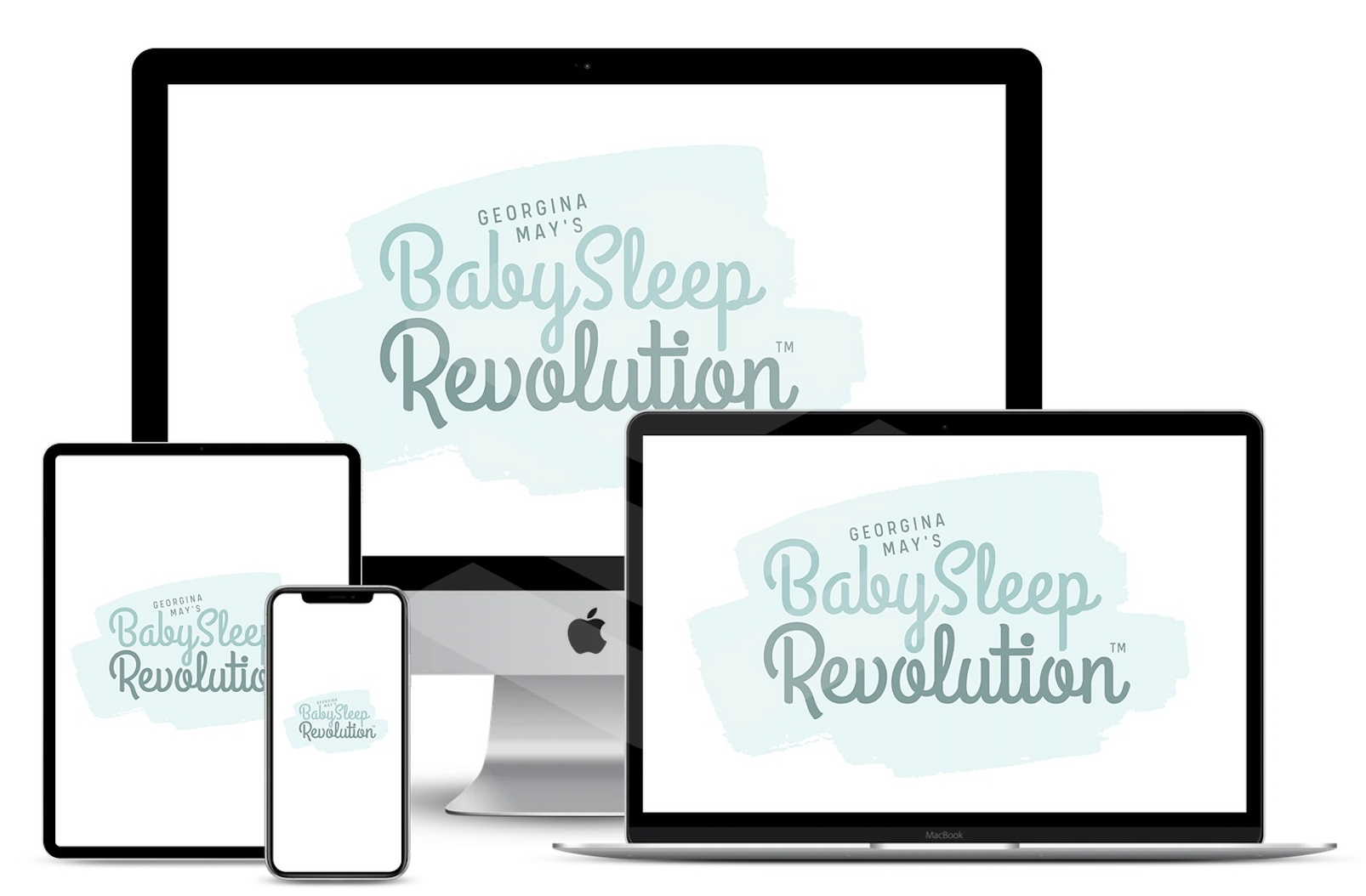
MODULE 1: Understanding The Science Of Sleep
The aim of this module is to give you a really comprehensive understanding of baby & toddler sleep. You’ll basically become a bit of a sleep guru yourself! You’ll learn about the science of sleep - how sleep works, and what the latest evidence and research tells us about baby sleep - so you'll be armed with the background knowledge you need to be able to implement the program effectively and confidently.
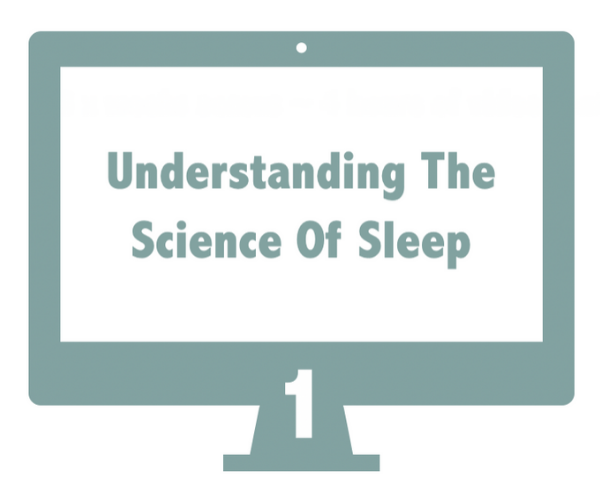
MODULE 2: How To Use The Science Of Sleep To Help Your Little One Sleep Better At Night
This is the ACTION module where you’ll get detailed step-by-step instructions to help you create and implement your own customised Sleep Pattern Reset plan. This module also includes a lot of additional information, tips and examples to help you stay on track and maximise your likelihood of seeing a great improvement, fast!
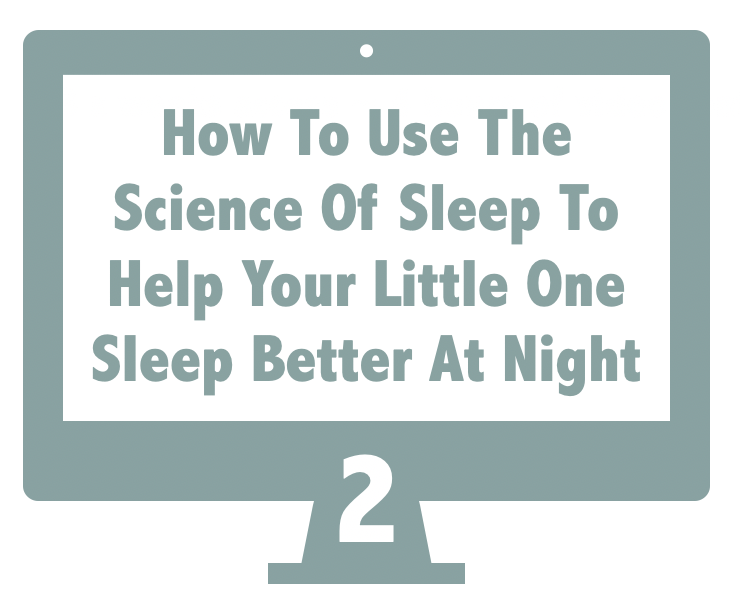
MODULE 3: Maximising Your Mama Mojo (or Papa Power)!
Last but not least the final video module focuses on how to recharge your own batteries, and keeping them charged so you can be the parent you want to be and make the most of parenthood. This module looks at the practical things you can do, how to get a good night’s sleep yourself, and changes you can make to your days to maximise your rest and your energy levels, even when you have limited support.
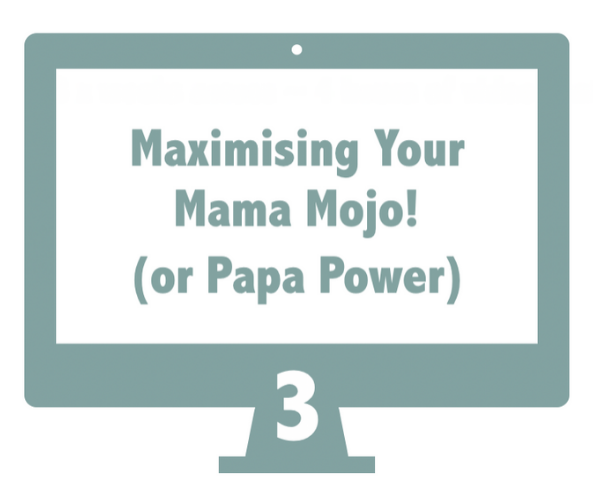
And if you're also a bit of a research-nut yourself...
You'll find every study and source cited in the video modules is referenced in a separate downloadable 12 page Reference & Resources PDF document.


'Managing A Sleep Pattern Reset With Other Caregivers' Bundle
($47 USD Value)
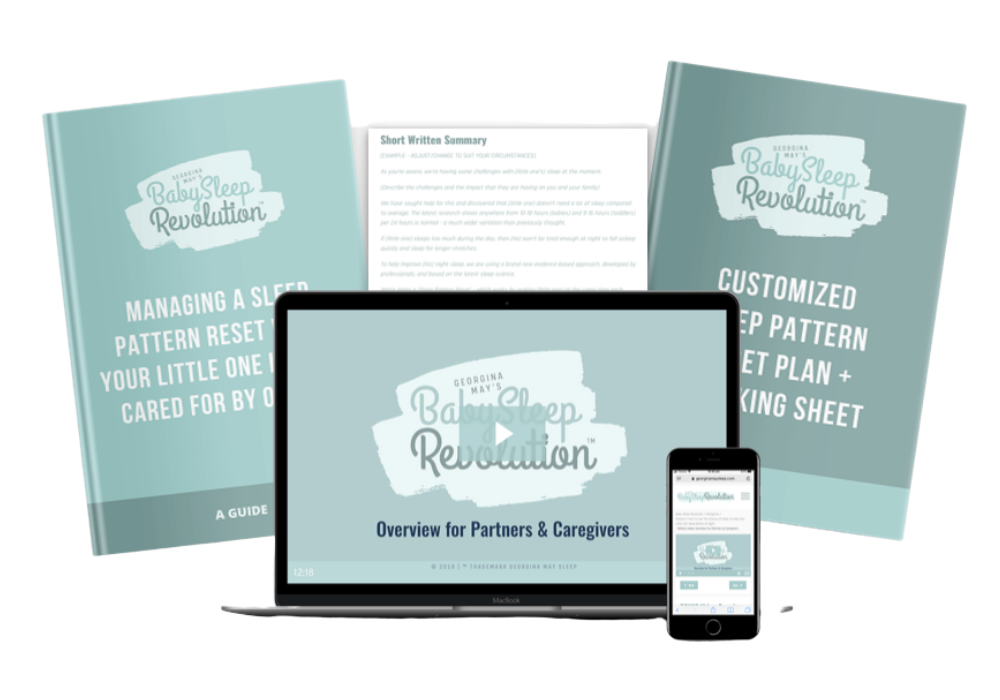
The bundle includes:
- A Step-By-Step Guide on how to work with other caregivers to implement a SPR effectively.
- A Short Written Summary of the approach with instructions for caregivers - it's done for you - just copy and paste!
- A SPR Plan & Tracking Sheet for you and other caregivers to keep track of your little one's sleep during the SPR.
- A Short 10 Minute Video Summary of the program you can send directly to caregivers.

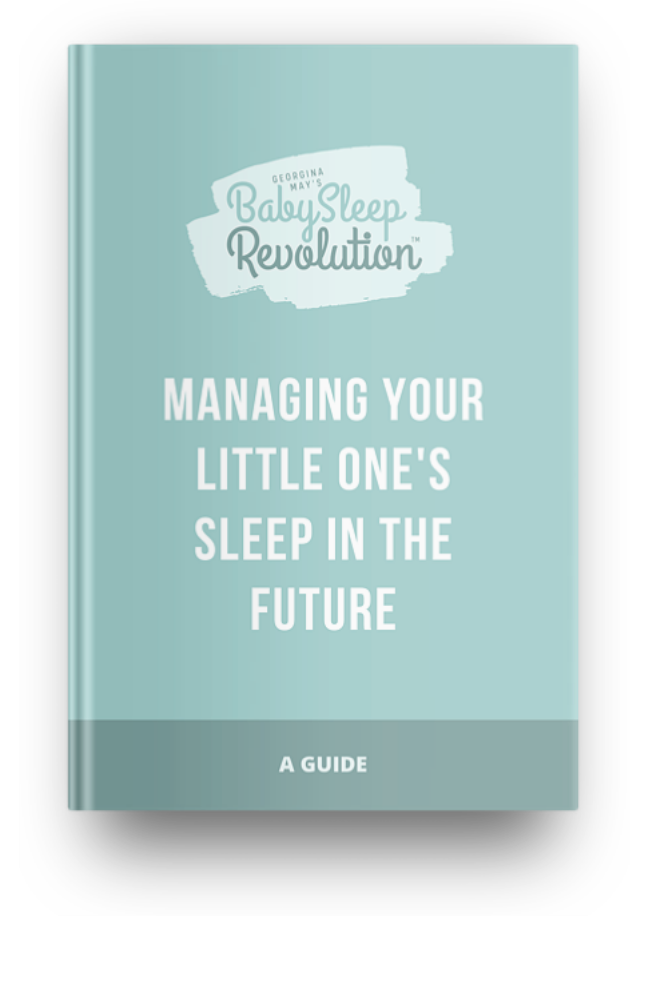
'Managing Your Little One's Sleep In The Future' Guidebook
($47 USD Value)
This 15 Page Comprehensive Guidebook includes resources, information and guidance on:
- Troubleshooting future sleep challenges and changes
-
Managing sleep during periods of illness or teething
-
Transitioning to own bed/room
-
Dropping naps
-
Transitioning to an alternative settling method
-
Gentle night weaning resources
-
Managing sleep when starting daycare / childcare / changes in caregivers
-
Managing sleep with siblings
-
Daylight savings / summer time transitions
-
How to manage sleep while travelling
Total Combined Value:
$291 USD
You Can Join Today For Just
$147 USD
(that's roughly $216 AUD, $238 NZD, $190 CAD, £120 GBP and €140 euro)^
Get Immediate Access

100% SECURE Processing
^ Currency conversion is approximate only (exchange rates are subject to change frequently) and excludes any fees / charges from your financial institution. Check directly with your credit card provider or financial institution for the current rate and any fees or charges that are applicable to you.
Price includes GST for Australian Residents.
Price includes GST for Australian Residents.
“I’m like a new person!”
“It changed me & my husband’s life!”
Sara’s 9mo boy went through a major regression at 4 months, waking every 30-60 minutes at night.
As a result of implementing the BSR program he went from 15-20 wakes/night down to just 2 wakes/night.
“I feel so much better! I’ve been able to exercise again, and go back to work.”
Bianca’s 9mo girl was waking very frequently - on a good night every hour, on a bad night up to 18-21 times.
After participating in the BSR program, she now wakes just twice a night.
“It has reduced my stress and mum guilt, and made me realise my baby is normal.”
Jess’ 11mo boy was waking up within 30-60 mins of going to sleep and then another 5+ times every night.
After BSR he wakes just once!
“It seriously changed our lives!”
Nadine’s 5mo boy was experiencing bedtime battles, multiple wakes, and long ‘parties’ during the night.
Within a week of starting the BSR program, he was sleeping through the night and continues to do so.
“It has guaranteed we get a couple of hours alone together as a couple in the evening.”
Before joining BSR, Hannah’s 15mo boy was waking very frequently - every 30 mins - 2 hours all night long and he had to be held for all naps.
After BSR, he now naps in his cot and is down to just two wakes / night on average.
“We’ve seen huge, huge wins. We all feel amazing!”
On bad nights Anjelica’s 8mo girl would have long bedtime battles and wake every hour in the middle of the night.
After BSR she wakes just 1-2 times at night and false starts are all but eliminated.
You Can Join Today For Just
$147 USD
(that's roughly $216 AUD, $238 NZD, $190 CAD, £120 GBP and €140 euro)^
Get Immediate Access

100% SECURE Processing
^ Currency conversion is approximate only (exchange rates are subject to change frequently) and excludes any fees / charges from your financial institution. Check directly with your credit card provider or financial institution for the current rate and any fees or charges that are applicable to you.
Price includes GST for Australian Residents.
Price includes GST for Australian Residents.
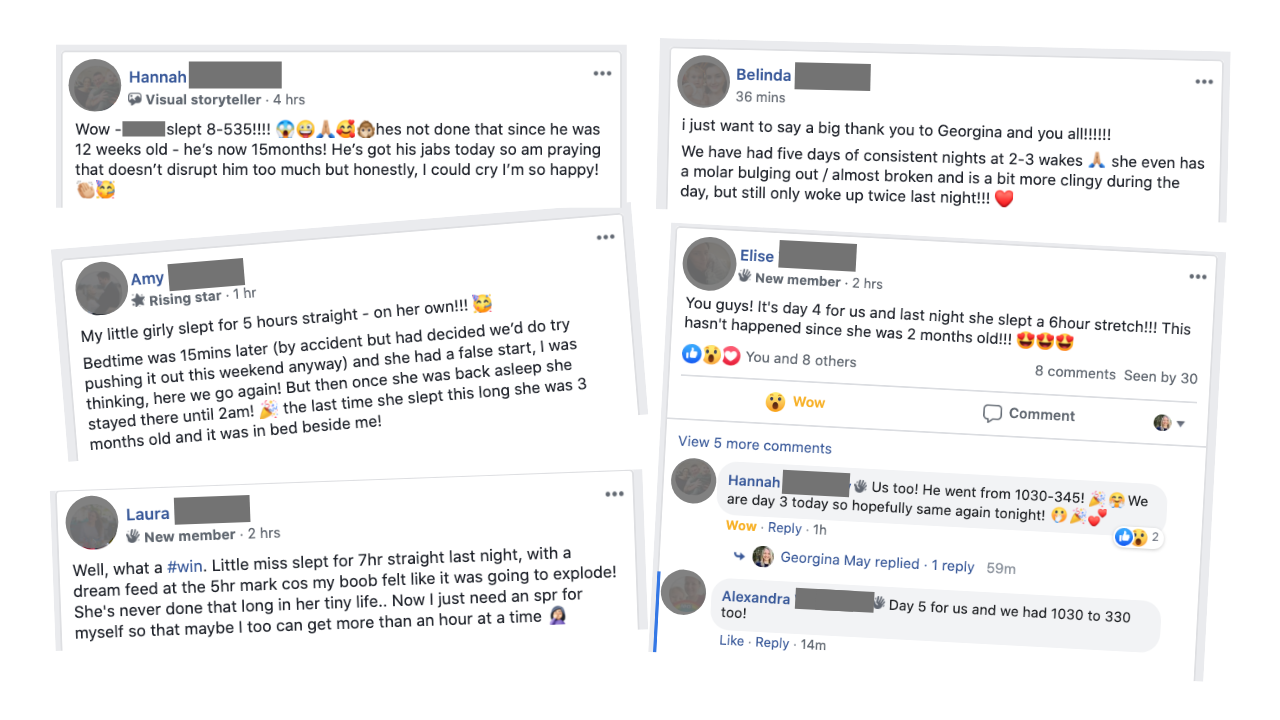
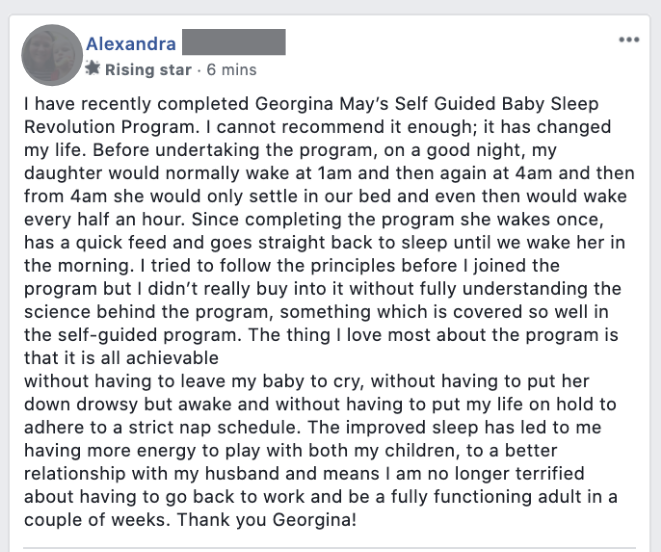
“A huge improvement, and I feel like a normal person again!”
Before BSR, Jessica was up every hour, sometimes up to 10 times per night with her 7mo.
As a result of doing the BSR program, her LO is down to 1-2 wakes per night on average.
“I have my sanity. I can function again. I can’t stress how amazing it has been for us!”
Jacqueline’s 6mo girl had been waking up every 30-60 mins all night since about 4 months of age.
After doing the BSR program, she now wakes 1-2 times at night, and Jacqueline feels really empowered and confident in managing her sleep going forward.
“Go for it. It works!”
Kay & Charlie’s 9mo girl had lots of false starts, 2-3 hour long midnight ‘parties’, Kay couldn’t move most of the night because she stayed latched, and they struggled to get her down for naps.
After BSR, she now settles really quickly, no more false starts, no more night time parties, and she only wakes twice!
You Can Join Today For Just
$147 USD
(that's roughly $216 AUD, $238 NZD, $190 CAD, £120 GBP and €140 euro)^
Get Immediate Access

100% SECURE Processing
^ Currency conversion is approximate only (exchange rates are subject to change frequently) and excludes any fees / charges from your financial institution. Check directly with your credit card provider or financial institution for the current rate and any fees or charges that are applicable to you.
Price includes GST for Australian Residents.
Price includes GST for Australian Residents.
Frequently Asked Questions
➡ Q1. "How Do I Know If This Will Work For Me?"
➡ Q2. "My Little One Has Always Been Wakeful - I'm Not Sure If They Have A Disrupted Sleep Pattern Or If There's Another Cause?"
➡ Q3. "My Baby Is 4 Months Old - Can I Join The Program?"
➡ Q4. "I Have A 4 Year Old - Are They Too Old For The Program?"
➡ Q6. "I've Invested So Much In Baby Sleep Advice Already - How Is This Different?"
➡ Q7. "What's The Difference Between Baby Sleep Revolution And Other Non-Sleep Training Solutions?
➡ Q8. "What Is Your Success Rate?
➡ Q9. "Do You Have A Money Back Guarantee?"
➡ Q10. "Who Is Georgina May?"
➡ Q11. "Is There A Payment Plan - Or Do You Offer An Option To Split Payments?
➡ Q12. "How Long Does This Program Take?"
➡ Q13. "What Exactly Do I Get When I Join?"
➡ Q14. "What Kind Of Support Do I Get With This Program?"
➡ Q15. "Do I Get One-On-One / Personal Access To Georgina?
➡ Q16. "When Does The Program Start?
➡ Q17. "What Happens If I Need To Take A Break / Move House / Travel During The Program?"
➡ Q18. "What If I'm Not Ready Right Now - Can I Join Later?"
➡ Q19. "Will This Program Work In My Country?"
You Can Join Today For Just
$147 USD
(that's roughly $216 AUD, $238 NZD, $190 CAD, £120 GBP and €140 euro)^
Get Immediate Access

100% SECURE Processing
^ Currency conversion is approximate only (exchange rates are subject to change frequently) and excludes any fees / charges from your financial institution. Check directly with your credit card provider or financial institution for the current rate and any fees or charges that are applicable to you.
Price includes GST for Australian Residents.
Price includes GST for Australian Residents.
© 2022 | ™ Trademark Georgina May Sleep
Terms & Conditions
Privacy Policy
This site is not a part of the Facebook website or Facebook Inc. Additionally, This site is NOT endorsed by Facebook in any way. FACEBOOK is a trademark of FACEBOOK, Inc.

